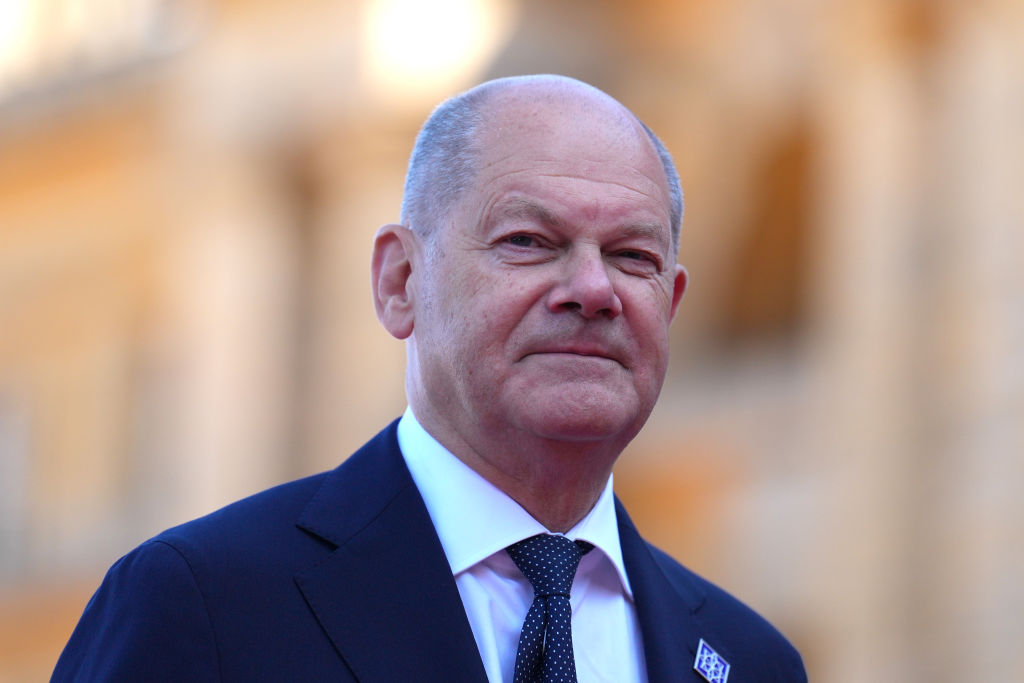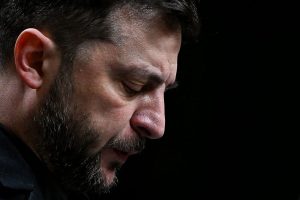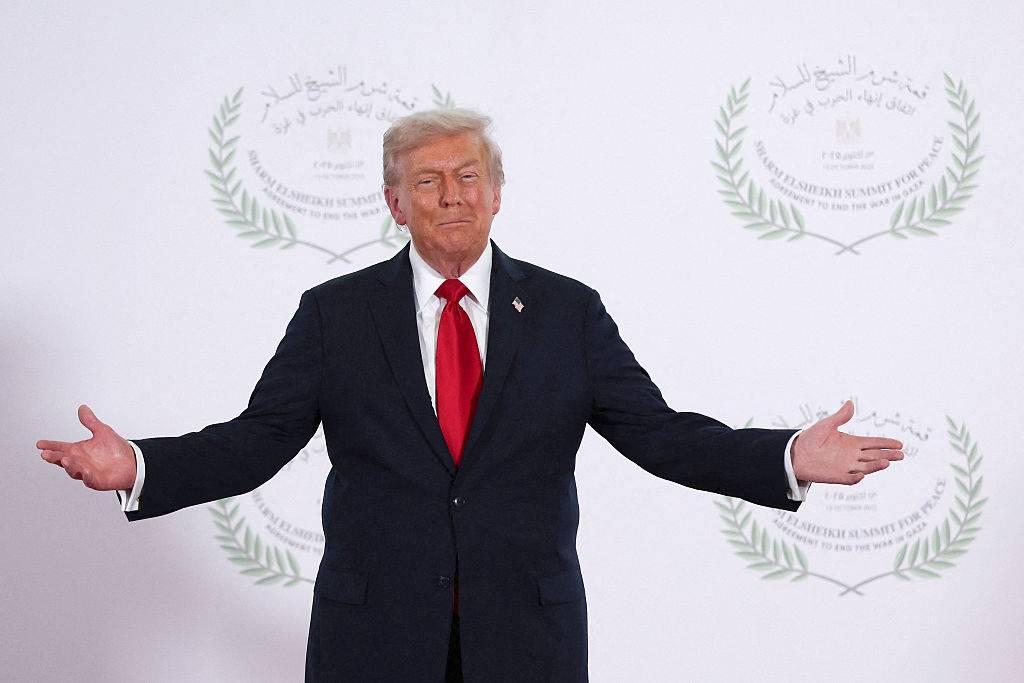It wasn’t so long ago that the German chancellor Olaf Scholz tried to convince fellow European leaders to do more to help Ukraine. Wherever he traveled in the spring, the message was the same: Vladimir Putin will only withdraw Russian troops “if he realizes that he cannot win the war on the battlefield,” Scholz told European social democrats at a meeting in April.
Now his coalition has decided to cut German military aid to Ukraine by half, Reuters reported, based on a draft of the 2025 budget. Next year, Europe’s largest economy intends to spend just €4 billion on supporting Kyiv against Russian aggression.
Germany’s finance minister Christian Lindner suggested at a press conference that this drastic cut will be compensated by other sources, arguing that “the financing of Ukraine is secured for the foreseeable future thanks to European instruments and G7 credits.”
The hope is that interest from frozen Russian assets could make up some of the shortfall. Currently, around €260 million are on ice in the EU, which reportedly generated €4.4 billion in interest last year — a windfall Brussels has agreed to use to aid Ukraine. The G7 has also agreed to raise a $50 billion loan for Kyiv backed by Russian assets.
In addition, the EU Commission has signaled this week that it is satisfied Ukraine has met the conditions for the first of regular quarterly payments from its Ukraine Facility plan, which intends to provide up to €50 billion in grants and loans for the period 2024-2027 to aid the country build resilient administration. The first installment of nearly €4.2 billion should soon be released.
Whether or not this funding reshuffle will provide enough support for Ukraine to avoid defeat on the battlefield remains to be seen. But what it has already achieved is a further chipping away at deterrence. By reducing the pushback against military aggression in Europe to spreadsheet politics, Scholz’s coalition is sending a clear signal to Moscow and the world: namely that his government is struggling to afford military intervention both financially and politically.
It is telling that the announcement of the cuts and their justification were presented by the finance minister. There was no real backup from the chancellor or the Ministry of Defense to attempt to frame it convincingly as a restructuring of funding to ensure predictability of cash flow in Kyiv.
The issue highlights once again that Germany is struggling to follow its words with action. Financially, this is tricky because the country has a self-imposed “debt-break” which limits the federal deficit to 0.35 percent of GDP. This means borrowing is difficult and Lindner has to balance the books. This task hasn’t been helped by the fact that the government blew a €60 billion hole into federal finances by reusing unused pandemic emergency funds for climate projects, which the country’s top court ruled unconstitutional at the end of last year.
With little financial wiggle room, the only way out would be to classify the war in Ukraine as an emergency and that is politically fraught given that nearly two-thirds of Germans think their own country is on a downward trajectory, according to a recent survey, and would want to see money spent on their own country first.
In general, the war in Ukraine is a much more contentious issue in Germany than it is in other parts of the West. When the US and UK declared in the spring that they would send new long-range cruise missiles to Ukraine, Scholz refused to follow suit, knowing he had the majority of the German public behind him. One survey at the time showed that less than a third wanted him to give in on this matter. Scholz felt encouraged to present himself as a peace chancellor to boost his party’s chances at the European elections in June.
To secure its own security and that of Europe, Germany needs to convey that it is willing and able to step up when needed
But the survey also showed that three-quarters of Germans want defense spending increased, even if that means shortages elsewhere or a suspension of the debt break. What neither they nor the rest of the democratic world need is for the third-largest economy in the world to signal to aggressors that they can act with impunity. Deterrence isn’t just about money for Ukraine but also about Germany’s own war-readiness.
Thanks to a €100 billion special fund introduced after the Russian invasion of Ukraine in 2022, Germany will meet its NATO target of spending 2 percent of GDP on defense next year. But the regular defense budget has only been increased by €1.3 billion rather than the €6.7 billion defense minister Boris Pistorius said he needed to bring the country’s depleted stock up to speed.
The special fund will be exhausted in 2027, so if regular spending isn’t increased, Germany’s armed forces will fall off a financial cliff edge then. They know that and find it difficult to plan ahead. Reportedly, important projects that were supposed to be launched next year have been put on hold such as the procurement of four new submarines, new Taurus cruise missiles and the development of new long-range missile systems.
To secure its own security and that of Europe, Germany needs to convey that it is willing and able to step up when needed. This is especially true now that a Donald Trump victory in the US seems increasingly likely and his running mate J.D. Vance has already singled out America’s “German friends” for an attack on allies that he claims receive US subsidies “to do nothing.” Should Trump and Vance come to power, the deterrence value of having American might behind European security will drop immediately. Saving €3.5 billion on aid to Ukraine would seem a sorry gain for the loss of much-needed German credibility.
Germany is not alone in struggling to find money in depleted public pockets. But with its huge economy and central geopolitical position in Europe, it does have a special responsibility for the continent’s security. Peace can only be secured if Germany looks like it means business in defending it. Ultimately, European security is about more than balancing the books.
This article was originally published on The Spectator’s UK website.


























Leave a Reply